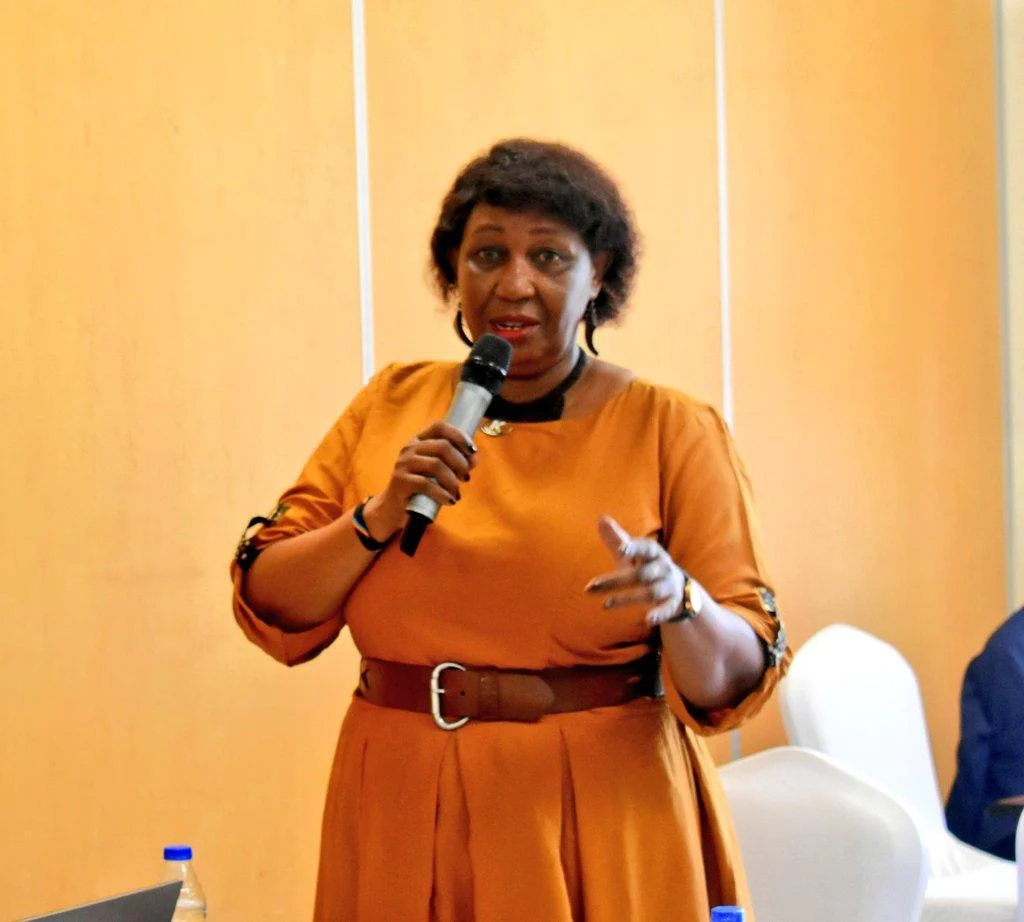Misinformation, Polarisation Threaten Uganda’s Media, Warns UHRC

The Uganda Human Rights Commission (UHRC) has vowed to intensify its efforts to combat misinformation, disinformation, and hate speech in the lead-up to the 2026 general elections, with a strong focus on media collaboration.
Mariam Wangadya, Chairperson of the UHRC, called on the government and all stakeholders to take immediate action to protect journalists, as misinformation and polarisation continue to escalate, particularly as the 2026 elections approach.
Wangadya emphasised the growing challenges facing journalism in Uganda today.
She noted that political, ideological, and social divisions are eroding trust in the media, making independent journalism not only more crucial but also increasingly difficult to practice.
“The environment for media work has become more complex,” Wangadya said.
“Journalists face rising financial, legal, and social pressures as they strive to hold those in power to account.”
She expressed deep concern over the increasing threats to media freedom, both online and offline.
Citing harassment, arbitrary arrests, and digital intimidation, Wangadya warned that these obstacles have severely impacted journalists' ability to report freely.
She stressed that it is essential for all sectors to take immediate action to create a safe environment for media workers.
As Uganda prepares for the 2026 elections, Wangadya underscored the importance of protecting press freedom to ensure the media can provide credible information and encourage informed public participation.
“The role of the media must not be undermined. Journalists deserve protection, dignity, and unfettered access to information,” she added.
Wangadya also called for increased efforts to tackle the spread of misinformation, build public trust in journalists, promote financial sustainability for media organisations, and strengthen legal protections for journalists.
She highlighted the need for ethical journalism, independent media regulation, and public media literacy to combat the spread of falsehoods.
“A free, independent, and professional press is the fourth pillar of democracy. “It strengthens transparency, protects human rights, and supports inclusive national development,"she said.
UHRC Commissioner Crispin Kaheru also highlighted the rising risk of misinformation as the 2026 elections draw nearer.
He stressed the importance of early preparation to mitigate these threats, which he anticipates will grow as election day approaches.
“The potential for misinformation, disinformation, and hate speech increases as elections approach. As the UHRC, we will be enhancing our civic education interventions,” Kaheru said
He added that the commission will work closely with the Electoral Commission, civil society organisations, and the media sector to address these issues.
Kaheru pointed out that while the UHRC would take a leadership role, the media itself plays a pivotal part in de-escalating tensions and combating misinformation.
Drawing from lessons learned in neighbouring Kenya, where the media played a key role in stabilising the country after the 2007-2008 election crisis, Kaheru urged journalists and media outlets to take responsibility in curbing falsehoods.
“The media is an important player. Instead of asking what the Uganda Human Rights Commission will be doing, you should be asking yourselves what you will be doing,” Kaheru said, calling on the media to take active ownership in addressing these issues.
While acknowledging the challenge posed by social media, where individuals have become self-proclaimed media outlets, Kaheru stressed that mainstream media has a critical role in ensuring accurate and responsible reporting during the elections.
“We look forward to working with all of you and our partners to successfully confront these challenges,” Kaheru said, urging a collaborative effort to protect the integrity of Uganda’s democratic process.
Journalists face rising financial, legal, and social pressures as they strive to hold those in power to account



0 Comments